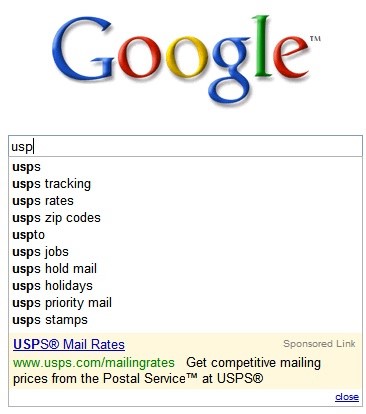Question: What does Taylor Swift have in common with Albert Einstein?
Answer: The fact that their names are instantly recognizable.
What they have is known as a powerful personal brand. Now, what you may not realize is that you, too, have a personal brand, although it may not be quite as powerful as Einstein’s or Swift’s. The personal brand is formed according to people’s experience with you and what you are most known for. You could, for example, be known for giving excellent advice or for being very honest. If you’re at a point in your life where you’re still waiting to land your dream job or build a stellar career, then know that your personal can be of great help.
The challenge, therefore, lies in you recognizing what your personal brand is and bringing that brand to the forefront the next time you go to auditions or job interviews or talk to investors about a startup. Many people have, in fact, come to recognize the value of building a personal brand. If you are a business owner, your personal brand could spell the difference between winning and losing clients. If you are a professional, it can spell the difference between getting hired and rejected for your dream job.
When investors, consumers, and/or potential employers conduct a background check these days, among the first places they’ll go to are Google and Facebook. Why risk having the HR Manager of the company you’ve wanted to be part of for years find a full list of unrelated namesakes on Google (or worse, find a negative listing for you) when they do an online search, when you can take steps to develop a strong and positive personal brand? The good news is that building a personal brand isn’t as difficult as you may think.
Personal Branding and SEO
Whether or not you are involved in IT work in any way, there’s a good chance you’ve already heard of search engine optimization (SEO), even in passing. And if you’re like most people, you probably think of SEO as something that only applies to businesses—something that helps businesses gain leads, drive traffic to their website, increase sales, and become a top contender in their respective industries. While it is true that SEO can indeed do all that for businesses, you need to realize that the benefits of SEO aren’t really exclusive to businesses.
You, too, can benefit from SEO when you use it to build your personal brand. As mentioned earlier, many employers now do an online search when conducting a background check of potential employees, particularly if the position they’re planning to fill is one of great import to the company. Employers want to know who you are not just as a worker, but more importantly, as a person. And they know that in this day and age, the Internet is perhaps the best venue for seeing the true character of an individual.

Many employers now do a Google search when conducting a background check on potential employees.
So, if you haven’t already done so, you need to start creating an online portfolio that’ll help point you towards the direction of your dream career. To ensure that you build the right image for your personal brand, ask yourself the following questions:
- If a potential employer conducts an online search using my name, what is he likely to learn about me?
- Will the information about me that’s found online impress a potential employer or scare him away?
- Is the information about me online helpful in terms of career prospects, or is it detrimental? Or does it not affect my prospects at all?
[column_break]
Of course, the goal is to make sure all the information found online about you helps you land your dream job or helps put you on the path towards your dream career. Now, there are generally two options available to you where this is concerned: First, you could just do nothing and simply pray for divine providence to give you your heart’s desire. Second, you could actually take responsibility for leaving a positive digital footprint, which serves as your calling card, resume, and online reputation all at the same time.
Which option do you choose? If it’s the second, then here are some tips on how to build a solid personal brand online:
1. Google Yourself
Remember what we said earlier in this article? Employers are likely to conduct an online search when performing a background check. And one of the questions you need to ask is what a potential employer is likely to find when he conducts an online search to do a background check on you, right? So, before you even apply for your dream job, you should already have the answer to that question. Type your name into Google’s search box to see what the Internet says about you.
Why Google, you ask? Well, it is the world’s largest search engine, right? If anybody were to conduct a background check via online search, it most likely is going to be a Google search. So, that’s where you need to start as well. If the results make you stand out and give you a favorable image, then good for you! If not, then you definitely have to do something about it. If you find nothing about yourself at all, then you could also consider yourself lucky because that only means you’ll have total control over the kind of online portfolio you build.
2. Start with a Blog
Maintaining a blog is an excellent way to build authority within your chosen field. If you get a good number of people to read your blog regularly and link to it, then you’ll definitely have something impressive show up when a potential employer googles you. If you get opportunities to guest blog for a related site, then it may be a good idea to grab those opportunities, especially if the owner of the blog is already an authority in his/her own niche. This not only extends your reach, but also enhances your reputation by placing you within the same league as industry influencers.

Blogging is an excellent way to establish expertise and authority in your chosen field; you could also guest blog on other authority sites.
Get your own domain name and then decide on a general topic or issue you want to be associated with. The topic/issue you choose will be the general theme of your blog. Naturally, you’ll want to stick to topics related to the career you’re aiming for. Once you’ve chosen your topic, start figuring out who your target audience is for the blog. Ask yourself how your blog can offer value to your target audience. This will serve as your guide in creating the individual posts for your blog.
You should also remember to create an author profile page that each of your blog posts link to. This helps increase the relevance of your profile page and improves your chance of ranking well for search queries conducted on your name. This also brings users to a landing page that displays an overview of all your latest blog posts, thereby making it easy for your readers to find what they’re looking for on your blog.
3. Be Consistent
Stick to the topic or theme you chose for your blog and strive to become an expert on that topic. Building a reputation of being an expert in one or two things is generally seen as more valuable than being a “jack of all trades.” So after deciding on the general theme of your blog, draw up a list of specific topics to cover and then create a calendar for your posts. The calendar will serve as your guide and provide structure to your blog.
Among the best ways to build a personal brand is through storytelling, and your blog can serve as your storytelling venue. But you can’t just throw one story after another to your readers, without considering structure. Your blog has to make sense, not just in terms of the individual posts, but also as a whole. This is why it is important to create a posting schedule and stick to it.
The only time you can adjust your content calendar to insert something else and still help your brand is when a reader poses an important question that you know others would want the answer to as well. In that case, you could write a blog post to address the question and just get back to your schedule on the next post.
Remember to adopt a long-term perspective when you start building your online portfolio. Although you can set deadlines for each task you plan to complete as part of the process, you cannot set a deadline for the entire project. After all, you cannot remain stagnant throughout your life; you need to keep improving if you want to have a successful career. Therefore, you need to keep adding to your online portfolio.
In the same way businesses cannot establish their brand overnight, a solid personal brand requires time and a lot of hard work to build. So, don’t wait until you’re ready. Make yourself ready and act NOW! Someday, you’ll thank yourself for doing so.




